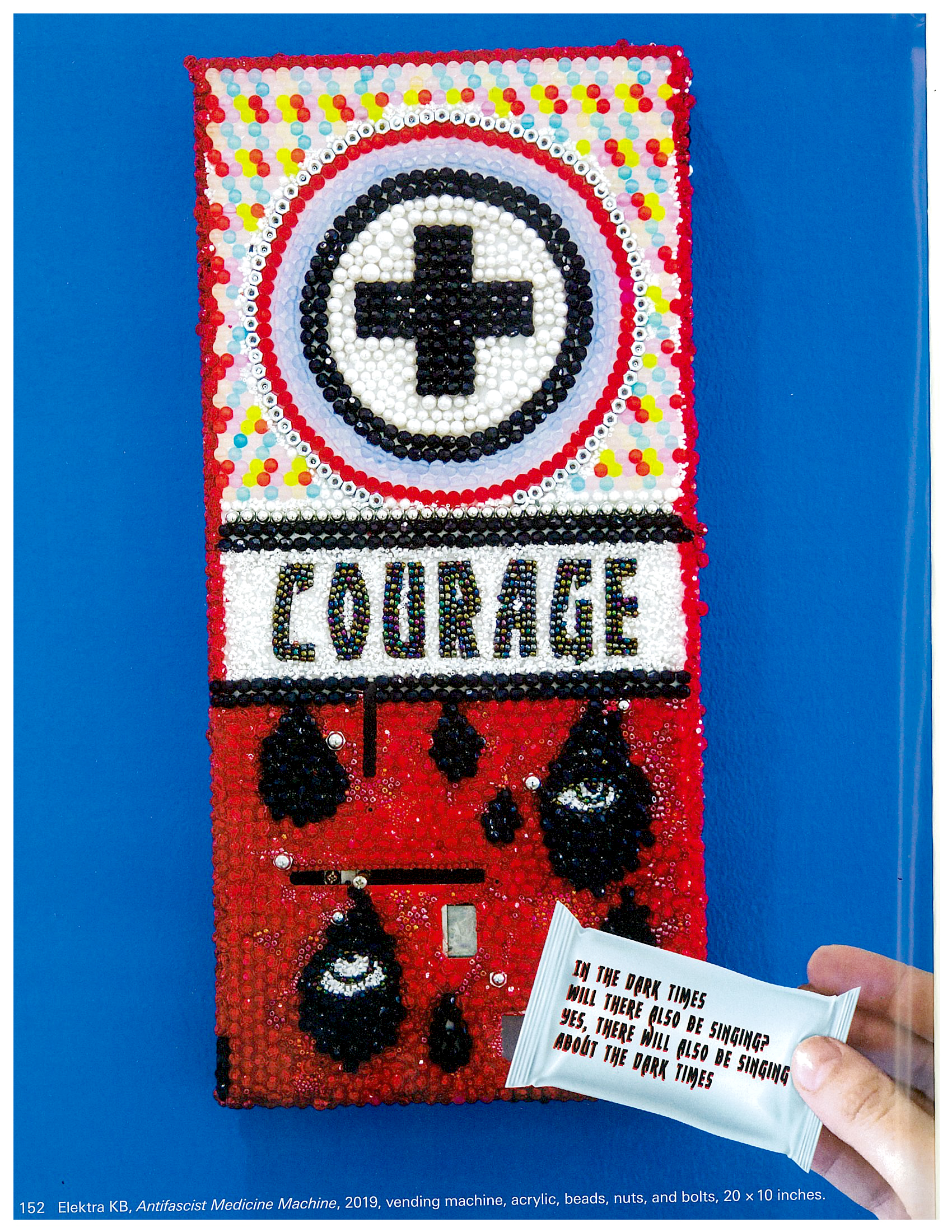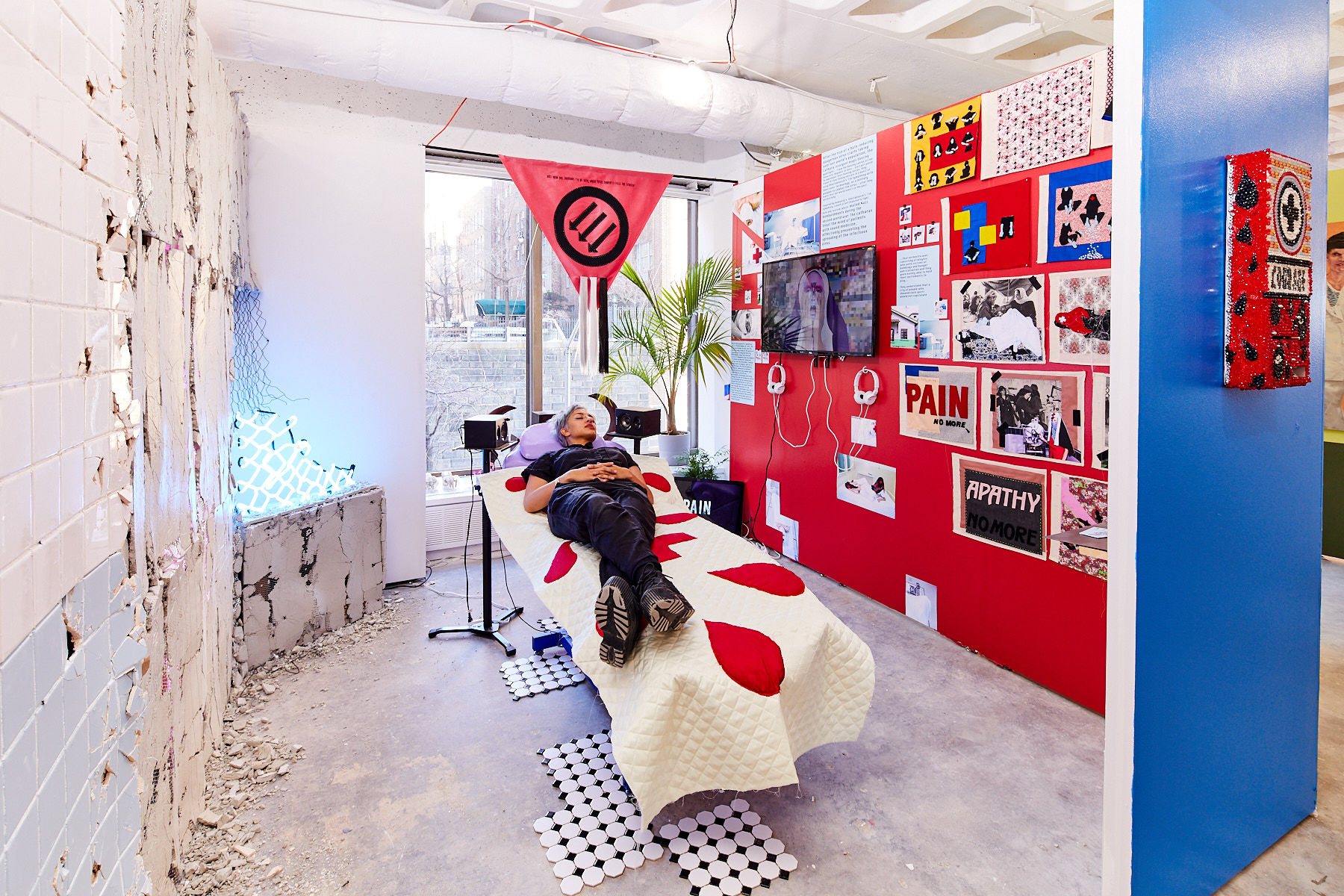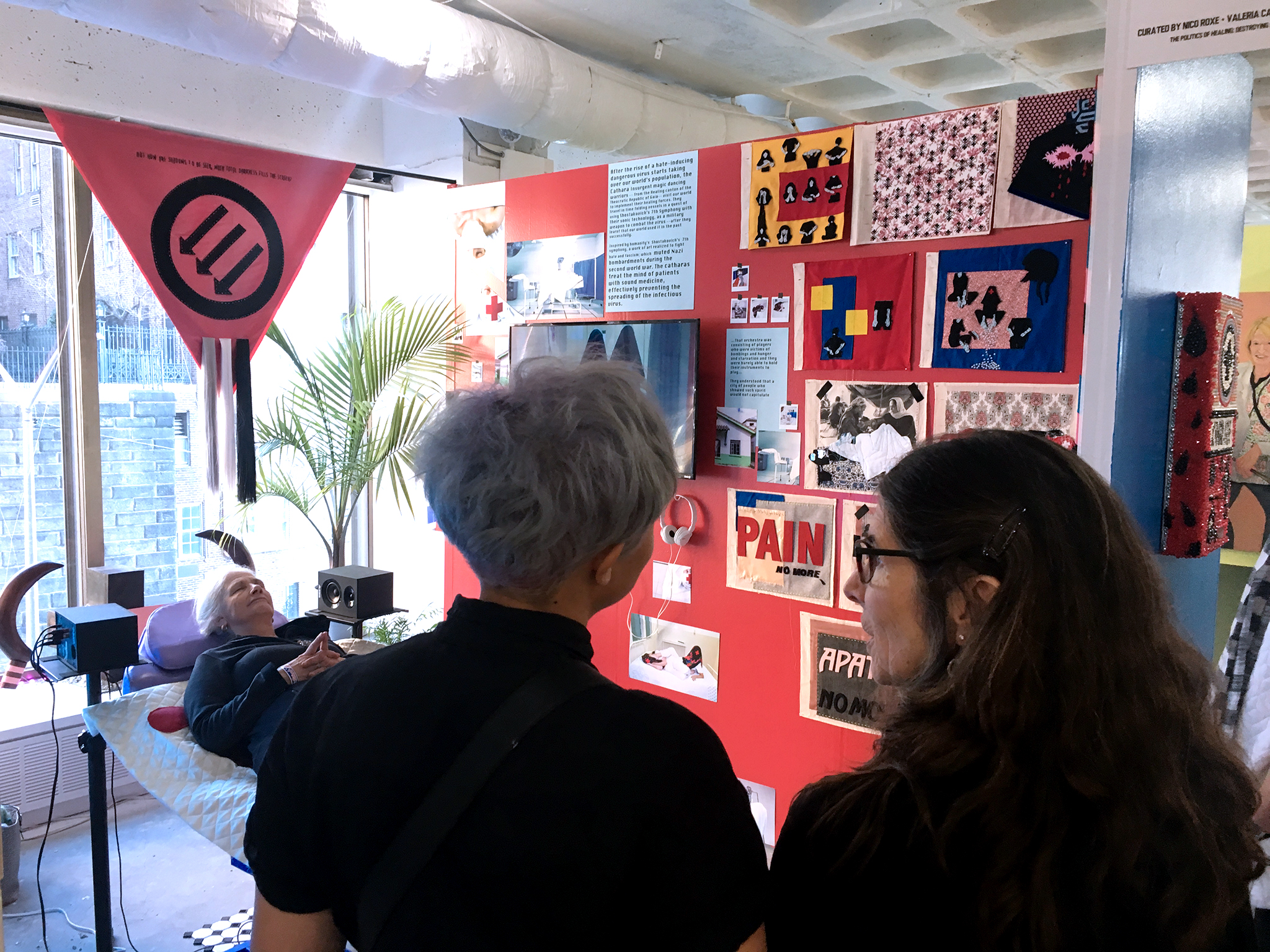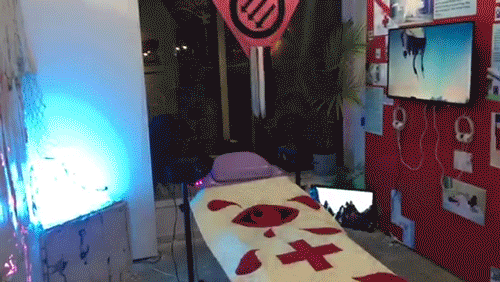Elektra KB: The Politics Of Healing, DESTROYING SILENCE
Medium: Site Specific Installation
Year: 2019
List Of Works:
▷ Flag Of The Cathara Insurgency
▷ But How Are Shadows To Be Seen When Total Darkness Fills The Screen?
▷ Apathy No More - Artist’s Book
▷ Antifascist Medicine Machine
▷ Cathara Insurgency Tetrapharmakos Cabinet
▷ Shostakovich’s 7th Symphony Healing Machine
▷ Shostakovich’s 7th Symphony
Healing Cathara Forces
▷ The Politics Of Healing: Destroying Silence - Video
▷ Apathy No More - Video
List Of Works:
▷ Flag Of The Cathara Insurgency
▷ But How Are Shadows To Be Seen When Total Darkness Fills The Screen?
▷ Apathy No More - Artist’s Book
▷ Antifascist Medicine Machine
▷ Cathara Insurgency Tetrapharmakos Cabinet
▷ Shostakovich’s 7th Symphony Healing Machine
▷ Shostakovich’s 7th Symphony
Healing Cathara Forces
▷ The Politics Of Healing: Destroying Silence - Video
▷ Apathy No More - Video
▷ SPRING/BREAK Art Show // ELEKTRA KB: THE POLITICS OF HEALING, DESTROYING SILENCE (Site specific installation) / New York City / March 5-11, 2019
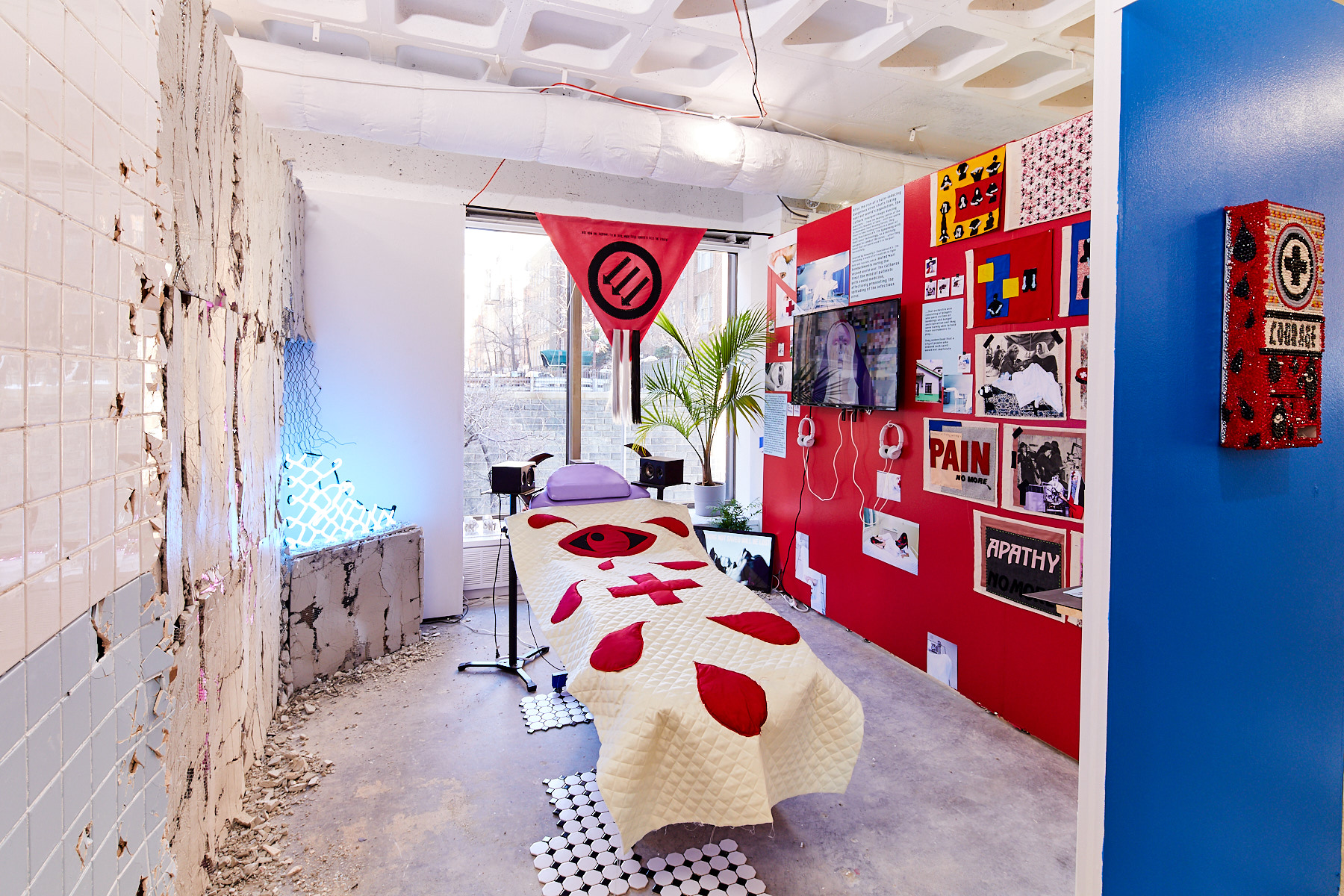
After the rise of a hate-inducing dangerous virus starts taking over our world’s population, the Cathara Insurgent magic dancing warriors visit our world to implement their healing forces.
Inspired by Shostakovich’s 7th symphony, a work of art realized to fight hate and fascism, which effectively muted Nazi bombardments during the second world war. The exhibition is an immersive utopic-dystopic hospital environment, which treats the mind of patients with medicated sound.
"Dmitri Shostakovich’s Symphony No. 7. It was August 9, 1942. Not only was Europe at war, but the German army stood at the gates of Leningrad. So long had the city been under siege that several orchestra members had succumbed to famine during the rehearsal period, and the ensemble, finding itself short of players, put out a call for help. The Soviet military officer in command of defense forces released any soldier who could play an orchestral instrument reasonably well long enough for the performance, which was transmitted by loudspeakers around the perimeter of the city, both to hearten the Soviet people and to make the point to the Germans that surrender was not at hand. During the concert, empty chairs were placed in the orchestra to represent musicians who had perished before the performance could be given."
